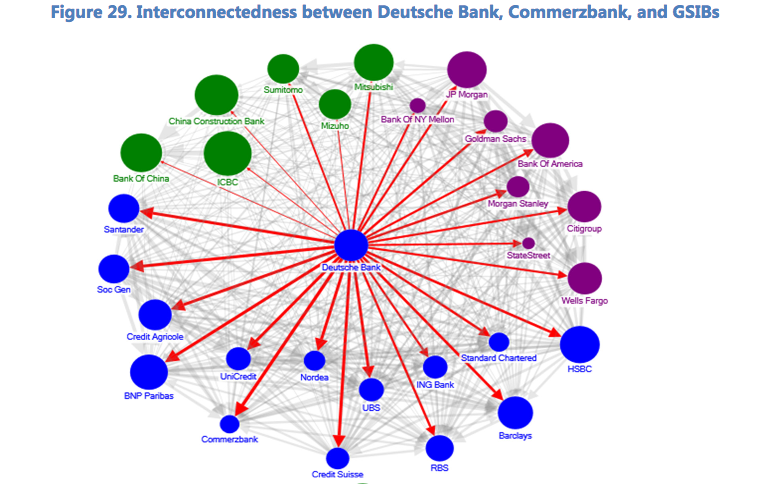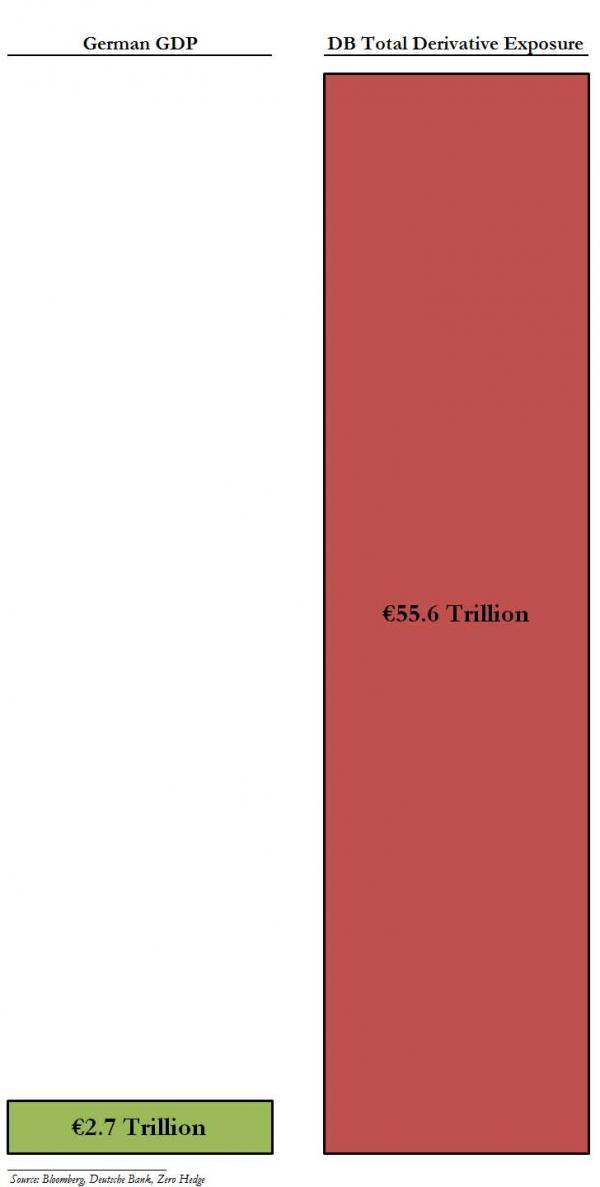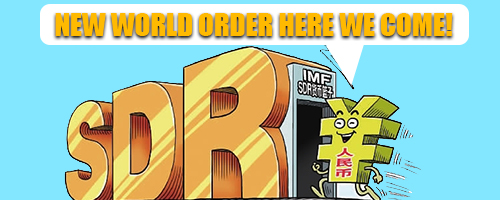
10-05-16 -- James Corbett (MP3s & VIDEO LOADED)
Hour 1 - 3
OTHER METHODS TO CONTRIBUTE TO FREEDOM'S PHOENIX (INCLUDING PAYPAL/CREDIT CARDS) CLICK HERE
Hour 1 -- Freedom's Phoenix Headline News
Hour 2 -- James Corbett (The Corbett Report) provides World News Update; topics range from the political circus, the surveillance state, Deutsche Bank and what this all means, Special Drawing Rights, 'U.N. takeover of the internet', etc...
Hour 3 -- Freedom's Phoenix Headline News
CALL IN TO SHOW: 602-264-2800
-30-
 Feature Article • Global Edition Feature Article • Global EditionFreedom's Phoenix Declare Your Independence APP now on Google Play Donna Hancock Listen to any recent show of "Declare Your Independence" at the click of a button! |

October 5th, 2016
Declare Your Independence with Ernest Hancock
on LRN.FM / Monday - Friday
9 a.m. - Noon (EST)
Studio Line: 602-264-2800

Hour 1
2016-10-05 Hour 1 FP Headline News from Ernest Hancock on Vimeo.
Ernest Hancock
Freedom's Phoenix Headline News
Hour 2
Hour 2 -- James Corbett (The Corbett Report) provides World News Update; topics range from the political circus, the surveillance state, Deutsche Bank and what this all means, Special Drawing Rights, 'U.N. takeover of the internet', etc...
-30-
Hour 2
2016-10-05 Hour 2 James Corbett from Ernest Hancock on Vimeo.
James Corbett
The Corbett Report
Webpage: CorbettReport.Com
James provides World News Update; topics range from the political circus, the surveillance state, Deutsche Bank and what this all means, Special Drawing Rights, 'U.N. takeover of the internet', etc...
James's previous interviews on the Declare Your Independence with Ernest Hancock Radio Show:
https://www.freedomsphoenix.com/Guest-Page.htm?No=01092
============================
Latest Videos...
5 Mind-Blowing Spying Technologies
Corbett • 10/05/2016
Scientists and engineers can spend years of their lives in painstaking trial-and-error experimentation to develop a breakthrough new technology…and the military-industrial complex can find a way to militarize it in mere hours.
Sadly the military aren't the only ones interested in the latest gadgets and inventions, though. The alphabet soup agencies are equally voracious for innovative new ways to spy on the public. Today let's examine five of the most amazing technological breakthroughs…that are about to be turned into nightmarish spying tech.
The Most Important Story You Didn't See This Week
Corbett • 10/02/2016
READ THE ARTICLE: https://www.corbettreport.com/?p=20011
SHOW NOTES: https://www.corbettreport.com/?p=20041
The yuan was officially added to the IMF's SDR basket today, which may not be world-shattering in and of itself. But when combined with the revival of SDR-denominated bonds there can be no doubt that the central bankers are making their play for a global currency. Unfortunately, most people have no idea what SDRs are, let alone the role they are going to play in the formation of the global government. Get up to speed with The Corbett Report's latest article, "SDR World Order."
Lessons From the Japanese Economic Meltdown
Corbett • 10/01/2016
SHOW NOTES AND MP3: https://www.corbettreport.com/?p=20018
As the Bank of Japan continues its de facto nationalisation of the Japanese economy, things do not look good for the Land of the__ Setting Sun. But as Japan-based economic analyst Marc Abela explains, the coming crisis may be our only opportunity for a real reset.
Silk Road, Digital Dragnet, Panic Mansions – New World Next Week
Corbett • 09/30/2016
Welcome to New World Next Week — the video series from Corbett Report and Media Monarchy that covers some of the most important developments in open source intelligence news. In this week's episode:
Story #1: UN, China Agree on Silk Road Initiative Cooperation
http://bit.ly/2dsBok0
China's Trillion Dollar Gamble: The New Silk Road
http://bit.ly/2cMiUrC
"Investment Guide to the Silk Road"
http://bit.ly/1zePN6O
China and the New World Order
http://bit.ly/2d8cUwr
Story #2: Police Abusing Confidential Databases All Over America
http://bit.ly/2dEz1cq
Seattle Cops Use CIA-Funded Geofeedia for Tracking Social Media
http://bit.ly/2cCJ0KD
Pre-Crime In WA As Gun Confiscation Proposed
http://bit.ly/2duRRUv
CA Law Says Cops Don't Have To Care About Where Their Guns Are
http://bit.ly/2d5Zk9A
Story #3: L.A.'s So-Called Superrich Anxiously Building Underground Panic Mansions
http://bit.ly/2dEwT4J
Trump Steaks @ Sharper Image
http://bit.ly/2dsCb4o
#GoodNewsNextWeek: Funeral Dogs, Love Hormone, Mindful Moments
http://bit.ly/2dExgw7
Corbett • 09/29/2016
SHOW NOTES and MP3: https://www.corbettreport.com/?p=4181
BECOME A PATRON: https://www.patreon.com/corbettreport
Skeptics are those who advocate taking a provisional approach to all claims and carefully evaluating all the evidence before coming to a conclusion. In other words, the very process that The Corbett Report is engaged in every week, right? Well, not according to the self-professed "skeptics," many of whom are content to skewer others for their logical fallacies yet frequently deploy logical fallacies of their own when "debunking" the "conspiracy theorists" that seem to be popping up everywhere. Join us on this episode of The Corbett Report as we note the hypocrisies of the supposed "skeptics" and embrace the term as our own. (Originally Aired: March 11, 2012)
============================
Latest Articles...

by James Corbett
corbettreport.com
October 5, 2016
You have no doubt heard by now about the precarious situation that Deutsche Bank finds itself in, including the impending US government fine for selling faulty mortgage-backed securities in the run up to the financial crisis. The lamestream media is busy running stories about German bailout rumors, and bank's uncanny ability to not quite die…yet. But in case anyone is tempted to draw comparisons with the 2008 financial crisis, rest assured that the failure of Deutsche Bank would be no "Lehman Bros. moment." It would be incomparably worse.
Deutsche Bank is not just one of the largest banking and financial services companies in the world (although it is that). It is also one of the most inter-connected banks in the world. As the IMF helpfully pointed out earlier this year:
"Deutsche Bank is also a major source of systemic risk in the global financial system. The net contribution to global systemic risk is captured by the difference between the outward spillover to the system from the bank and the inward spillover to the bank from the system based on forecast error variance decomposition. Deutsche Bank appears to the most important net contributor to systemic risks in the global banking system, followed by HSBC and Credit Suisse. Moreover, Deutsche Bank appears to be a key source of outward spillovers to all other G-SIBs as measured by bilateral linkages."
And here is the handy dandy diagram they provided to demonstrate those "bilateral linkages" that could contribute to "outward spillovers" to the other "G-SIBs" (that's "globally systemically important banks" to all of you not versed in Bankster-speak):
But more to the point, this doesn't just mean that their CEOs play golf together every year or two. These linkages include derivatives counterparties. What this diagram is really showing us is that when/if Deutsche Bank goes under it will create a derivatives black hole that threatens to draw in most of the largest financial institutions in the world…each one of which would then create its own black hole of derivatives debt.
Now you'll remember that derivatives are bets on the performance of some other thing, like an asset, index, interest rate, etc. Like any bet, it can happen between two or more people and things can get very messy when one of the people involved doesn't have the money to pay up in the end. But derivatives can get even more wild, since the amounts in question can add up to trillions of notional dollars, i.e. money that does not actually change hands…unless everything falls apart and someone is left holding the bag.
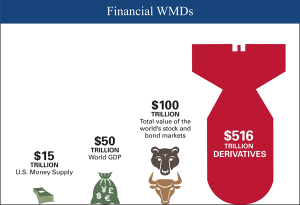 This is why Warren Buffett famously referred to derivatives as "weapons of mass destruction." This is also why the 2008 crisis was so severe. If AIG had not been bailed out then its $527 billion in credit default swaps with Goldman Sachs, Morgan Stanley, Bank of America and Merrill Lynch (as well as DB and dozens of other European banks) would have unwound and potentially brought down the global financial system. And so the banksters held the proverbial (or not-so-proverbial) gun to Congress' head and achieved the largest bailout in corporate history.
This is why Warren Buffett famously referred to derivatives as "weapons of mass destruction." This is also why the 2008 crisis was so severe. If AIG had not been bailed out then its $527 billion in credit default swaps with Goldman Sachs, Morgan Stanley, Bank of America and Merrill Lynch (as well as DB and dozens of other European banks) would have unwound and potentially brought down the global financial system. And so the banksters held the proverbial (or not-so-proverbial) gun to Congress' head and achieved the largest bailout in corporate history.
So if all of that was done on the basis of AIG's half-a-trillion or so in counterparty risk, what are we looking at with Deutsche Bank?
Well, in 2013 its notional derivative exposure was 55.6 trillion euros. Let's put that in perspective with a graphic from ZeroHedge comparing DB's derivative exposure to the Gross Domestic Product of Germany.
Does that look frightening? Well, don't worry. Deutsche's derivative black hole has been pared back to a much more modest 46 trillion or so euros, a mere 15 times German GDP.
Does that make you feel any better? I didn't think so.
Well, maybe this will make you feel better: In the wake of the 2008 meltdown, the banksters put their heads together to come up with some new regulatory guidelines for containing the derivatives exposure mess. These changes were articulated by the G20 at the 2009 Pittsburgh conference. While the protesters outside were being abducted in broad daylight and being introduced to the LRAD, the banksters' political puppets were busy hammering out the following:
"All standardized OTC derivative contracts should be traded on exchanges or electronic trading platforms, where appropriate, and cleared through central counterparties by end-2012 at the latest. OTC derivative contracts should be reported to trade repositories. Non-centrally cleared contracts should be subject to higher capital requirements."
(Interestingly, this idea was first proposed in a white paper published by the Bank for International Settlements (yes, that Bank for International Settlements), then announced at the G20, then handed off to the Financial Stability Board (which I've discussed before) to insure compliance, and then adopted by the individual central banks that make up the BIS membership. And that in a nutshell is how global marching orders are given without the need for an explicit "global central bank" with authority over everyone.)
So theoretically this new regulatory regime, combined with the fact that many of Deutsche Bank's derivatives will be hedged by other trades, will mean that we won't be looking at a 46 trillion euro black hole if Deutsche goes under…
…Unless.
 Unless the regulations that the banksters enacted to "control" the derivatives problem were mere window dressing to distract the public while the banksters carry on with their world-threatening casino games.
Unless the regulations that the banksters enacted to "control" the derivatives problem were mere window dressing to distract the public while the banksters carry on with their world-threatening casino games.
Unless the IMF, which went to great pains to single Deutsche Bank out as the most precarious bank in Europe, might have ulterior motives for destabilizing the existing financial order and bringing in one governed by their own soon-to-be global reserve instrument.
Unless the US government has its own reasons for pulling the rug out from under the ECB by imposing a fine that they know would cause Deutsche to go under.
Unless the ECB actually welcomes such an event (and the recalcitrance of Germany to bail the bank out) as an excuse to flex its muscle and intervene directly with a miracle bailout that "saves the world" in the nick of time.
But we all know such august institutions as these would never cause a crisis in order to benefit from it, would they?
And on a completely unrelated note, Deutsche Chief Executive John Cryan is in Washington this week to meet with US officials on the sidelines of the IMF's annual meeting. Sleep tight, everyone!
SDR World Order
by James Corbett
corbettreport.com
October 1, 2016
I'm not sure how to break this to you, but it appears the world is ending this weekend. Or at least that's what you'd believe if you were reading certain corners of the internet.
As you may have already heard, the UN is "taking over the internet" this weekend. But as you've also heard if you follow The Corbett Report, that is a complete misrepresentation of what is really happening. Worse, hyperbole about a "UN takeover" of the internet obscures the real solution to ICANN and the centralized DNS system.
But there's another "end-of-the-world" event taking place this weekend that you might not have picked up on: the SDR.
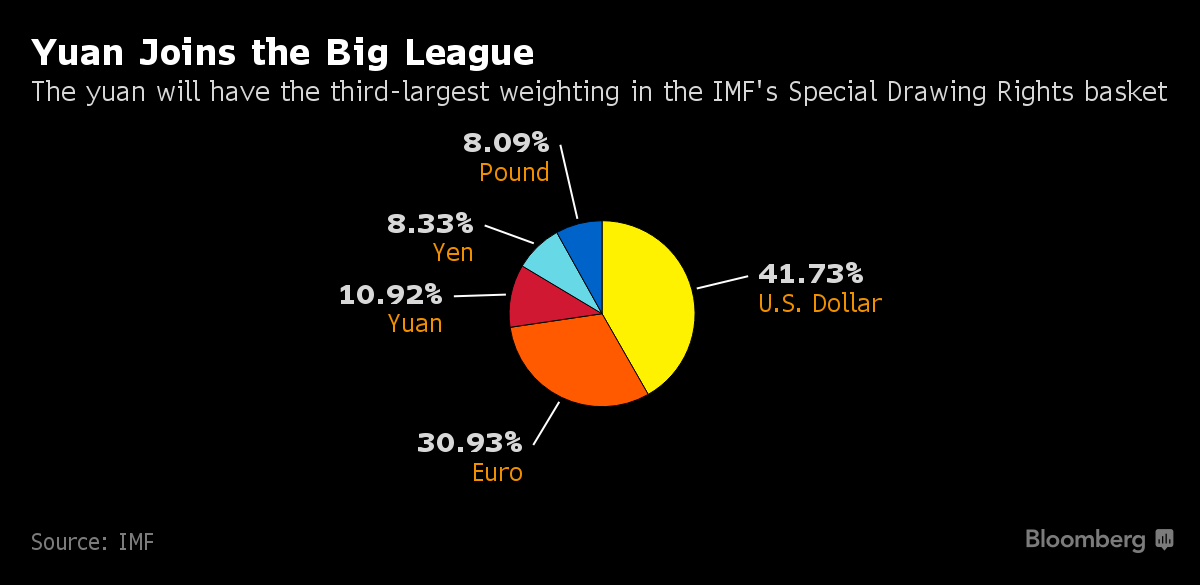 That's right, the IMF is formally adding the Chinese renminbi (aka the yuan) to their "Special Drawing Rights" basket on Saturday, October 1st. The move boosts the yuan to the status of global reserve currency alongside its basketmates, the pound, the euro, the yen and the dollar. At 10.92% it will be the third highest-weighted currency in the basket, behind the euro at 30.93% and the dollar at 41.73%.
That's right, the IMF is formally adding the Chinese renminbi (aka the yuan) to their "Special Drawing Rights" basket on Saturday, October 1st. The move boosts the yuan to the status of global reserve currency alongside its basketmates, the pound, the euro, the yen and the dollar. At 10.92% it will be the third highest-weighted currency in the basket, behind the euro at 30.93% and the dollar at 41.73%.
For those who missed my previous reporting on the SDR and the significance of the yuan's inclusion, here's the primer:
The SDR is not a currency, but a potential claim on dollars, yen, euros, pounds, and now yuan.
It is issued by the IMF and held (and traded) as a "supplementary reserve asset" by central banks.
There are 204 billion SDRs outstanding, equivalent to $285 billion or about 2.5% of total global reserves.
The upshot of the SDR is that it provides liquidity for global transaction settlement in times when dollars and gold are in scarce supply. Inclusion of a currency in the SDR basket means that there is a built-in demand for that currency as central banks tend to match their currency holdings to the basket's weighting, meaning that central bankers around the world are now (or have already) adjusted their aggregate holdings of yuan to about 10.92% of their portfolio. With $11.6 trillion of reserves globally, that equates to over $1 trillion worth of yuan being held in central bank coffers around the world.
More than that, the move is expected to boost investment in the yuan from both FX reserve managers and global portfolio managers. The FX inflows alone have been estimated at as much as $3 trillion in the coming years, with onshore bond buying accounting for a further $1 trillion of expected foreign investment.
Some outlets are hailing this as the largest transformation of the global monetary order since WWII.
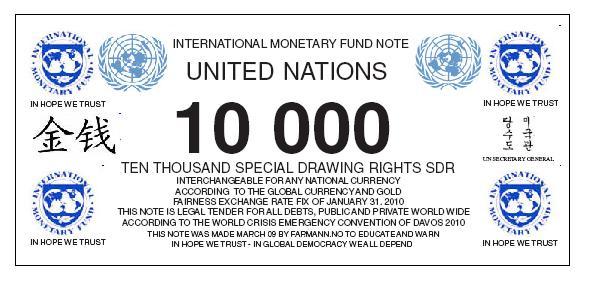 Others, like Barron's Chi Lo, are putting a wet blanket on that hyperbole. In an article titled "What Now for China as Renminbi Joins SDR?" Lo argues that much of the re-balancing of global reserve portfolios have already been completed, and would have only amounted to an extra $31 billion of demand for the yuan, a drop in the bucket of global liquidity. And global investors, he says, will not base their investment decisions on China's SDR status, but on China's commitment to the structural reforms which have been put on the back burner since the yuan achieved SDR status:
Others, like Barron's Chi Lo, are putting a wet blanket on that hyperbole. In an article titled "What Now for China as Renminbi Joins SDR?" Lo argues that much of the re-balancing of global reserve portfolios have already been completed, and would have only amounted to an extra $31 billion of demand for the yuan, a drop in the bucket of global liquidity. And global investors, he says, will not base their investment decisions on China's SDR status, but on China's commitment to the structural reforms which have been put on the back burner since the yuan achieved SDR status:
"SDR inclusion of the renminbi is not relevant to the portfolio re-balancing decision (to increase the weighting of renminbi-denominated assets) of international investors. The impact on global portfolio decisions will come from foreign investors' assessment of China's fundamental outlook, the opening of China's capital account and the decision by international index providers, such as MSCI, to include Chinese A-shares in their global indices."
So who's right? Is this the dawn of a new monetary order, or a blip of little significance in and of itself? Well, in a weird way perhaps both are right. China's SDR inclusion is not going to turn the world upside-down overnight. And if it was just the inclusion of one more currency in the global reserve basket (and only 10% of the basket at that), then this wouldn't be significant all by itself. But while you were sleeping another development came along that gestures to the potentially transformative nature of this SDR makeover.
In August the World Bank announced to relatively little fanfare an historic bond issue: The International Bank for Reconstruction and Development (IRBD), one of the five institutions under the World Bank umbrella, would sell nearly $3 billion worth of SDR-denominated bonds. And the currency of settlement? The Chinese yuan.
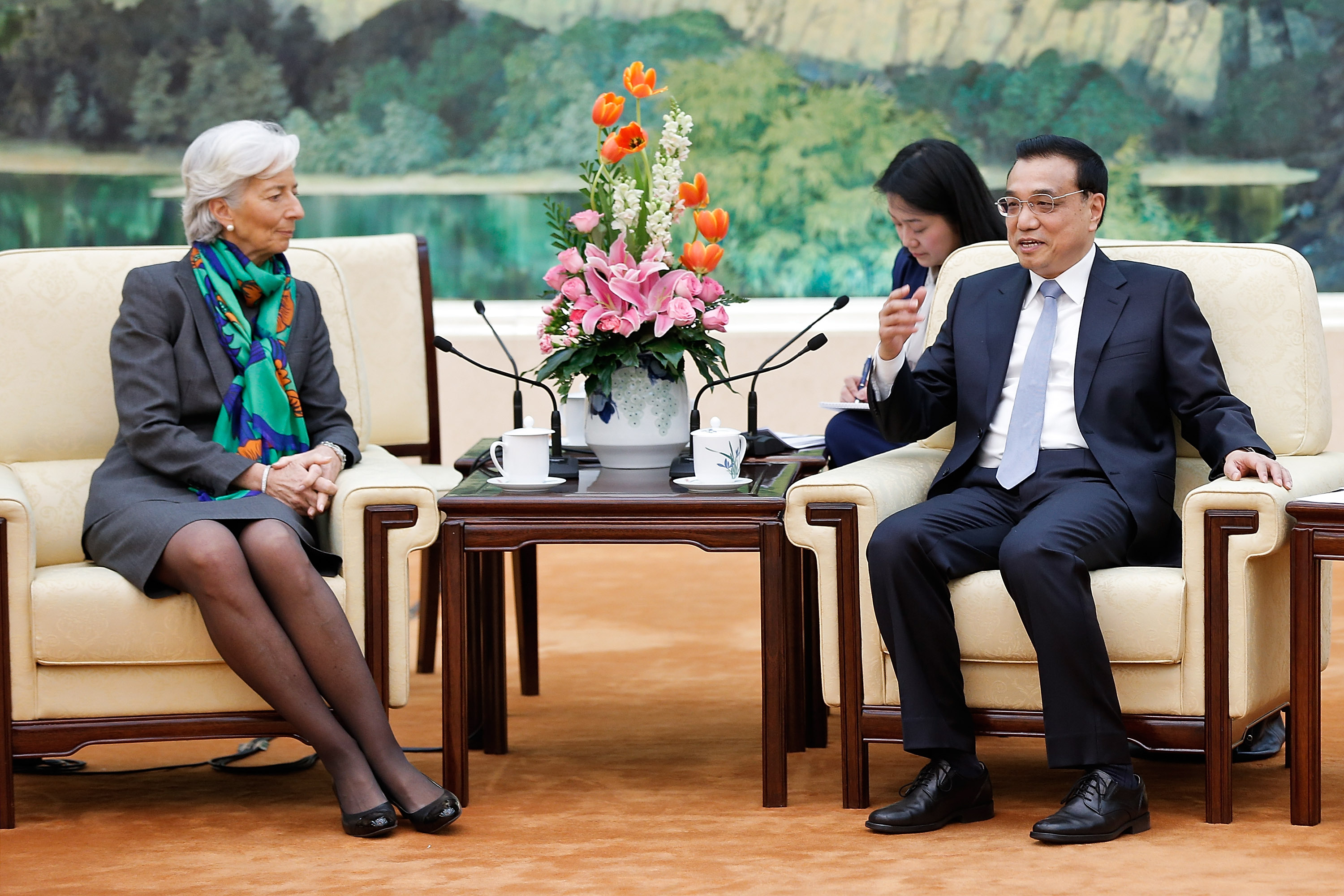 SDR-denominated bonds were flirted with decades ago, most recently in 1981, but the market for SDR bonds did not develop and they soon went the way of the dodo. But now, lo and behold, 35 years later they're making a comeback, right in the heart of the world's rising economic dragon.
SDR-denominated bonds were flirted with decades ago, most recently in 1981, but the market for SDR bonds did not develop and they soon went the way of the dodo. But now, lo and behold, 35 years later they're making a comeback, right in the heart of the world's rising economic dragon.
The issue, which went ahead on August 31st, serves a mundane, practical purpose: It allows Chinese investors to dabble in different currency assets without investing abroad. But at the same time it serves a much bigger purpose. In attempting to revive the long-dormant SDR bond market, China is tacitly backing the SDR as a reserve currency unto itself. Not a mere claim that is redeemed in other currencies by central banks in need of liquidity, but a settlement currency in and of itself.
As I explained before, this has been Beijing's plan since the 2009 crisis: not to have the yuan replace the dollar as the global reserve, but to have the SDR replace the dollar. This allows the Chinese government to avoid having to liberalize the yuan or ease up on its rigid capital controls, but still gives it a seat at the table in a new global monetary order while simultaneously dethroning their best frenemy, the US. It's win-win-win for China and, more importantly, win-win-win for the globalist oligarchs who want to bring in a New World Order of globally-administered currency.
As The Epoch Times puts it: "This is the first step toward one world currency."
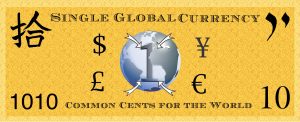 And guess what? It's been in the planning for years, openly discussed in the central bankers' white papers, decision documents and conferences, but conveniently unreported by the media and completely overlooked by the public.
And guess what? It's been in the planning for years, openly discussed in the central bankers' white papers, decision documents and conferences, but conveniently unreported by the media and completely overlooked by the public.
In March 2009, as the world was still reeling from the Global Financial Collapse, Zhou Xiaochuan, the Governor of the People's Bank of China, published an essay on March 23, 2009 in an essay bluntly titled "Reform the international monetary system." In it, he argued that the world could no longer afford to be tied to the US dollar and the vagaries of the American financial system. Instead, it needed to be presided over by those trustworthy angels at the IMF:
"Compared with separate management of reserves by individual countries, the centralized management of part of the global reserve by a trustworthy international institution with a reasonable return to encourage participation will be more effective in deterring speculation and stabilizing financial markets. The participating countries can also save some reserve for domestic development and economic growth. With its universal membership, its unique mandate of maintaining monetary and financial stability, and as an international 'supervisor' on the macroeconomic policies of its member countries, the IMF, equipped with its expertise, is endowed with a natural advantage to act as the manager of its member countries' reserves."
And in case that wasn't clear enough, Zhou also wrote that: "The SDR has the features and potential to act as a super-sovereign reserve currency."
The very next year the Bank for International Settlements (yes, that Bank for International Settlements), the European Central Bank and the World Bank jointly organized the Third Public Investors Conference, a chance for 80 central bankers, wealth fund and pension fund managers to hobnob at the BIS' headquarters in Basel and discuss their world domination schemes. The results of that conference were collected in an edition of "BIS Papers" and published on the BIS website. One of those papers, penned by George Hoguet and Solomon Tadesse of State Street Global Advisors, discussed "The role of SDR-denominated securities in official and private portfolios" and predictably pimped the revival of SDR bonds that we are currently living through:
"An investor can synthetically replicate the weights of an SDR-denominated bond, but a security denominated in SDRs is self-rebalancing and is likely to minimize rebalancing costs. Additional research, particularly on the coordination problem (which limits liquidity) and operational issues, including settlement, can facilitate the development of an SDR-denominated bond market. Williamson (2009a) suggests that greater private use of the SDR could possibly facilitate greater official use, including the pegging of currencies to the SDR rather than to a basket of currencies or to some bilateral exchange rate."
In other words, SDR bonds create the market for SDRs generally and legitimate their use as a settlement currency in their own right.
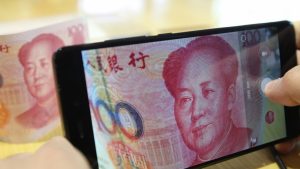 Now, six years later, here we are with the World Bank helping China issue SDR-denominated bonds. This is the real reason that this bond issue is happening at all. As The Epoch Times points out: "For the IBRD, there is no advantage because it is borrowing in strong currencies and getting paid in a relatively weak one."
Now, six years later, here we are with the World Bank helping China issue SDR-denominated bonds. This is the real reason that this bond issue is happening at all. As The Epoch Times points out: "For the IBRD, there is no advantage because it is borrowing in strong currencies and getting paid in a relatively weak one."
No, this is not about some wonderful new way for the World Bank to cheaply finance its bond issues; it is entirely about legitimizing the role of the SDR on the world stage as a potential world currency.
It remains to be seen whether this strategy will be successful. The first bond issue was a success, with a bid to cover ratio of 2.5 and 50 institutional investors—from central banks to domestic banks, brokerages and insurance companies—bidding on the instruments. But ZeroHedge quotes a fixed-income fund manager in Hong Kong who was not so impressed by the auction: "We are not interested in SDR bonds and we can't see why Chinese investors should want these bonds since they can easily buy much higher yielding bonds in China."
Whether SDR bonds will take off depends completely on whether the central bankers can convince the financial world of the benefits of scuttling the dollar reserve system. That will take some concerted effort, which is why we should expect to see an increase in stories raising awareness about SDRs and their potential utility in the coming years.
In that sense, the spate of stories this weekend about the yuan's SDR inclusion may not be so much the end of the world as the first wave of propaganda getting people ready for the end of the world.
Hour 3
Hour 3 -- Freedom's Phoenix Headline News
-30-
Hour 3
2016-10-05 Hour 3 FP Headline News from Ernest Hancock on Vimeo.
Ernest Hancock
Freedom's Phoenix Headline News

















